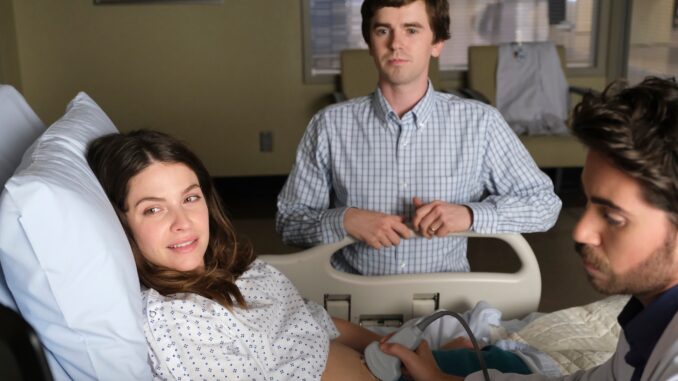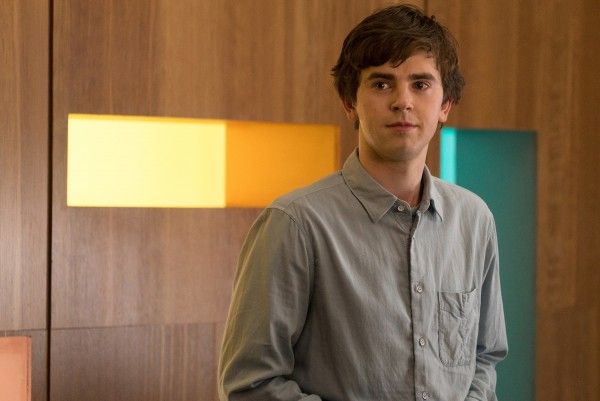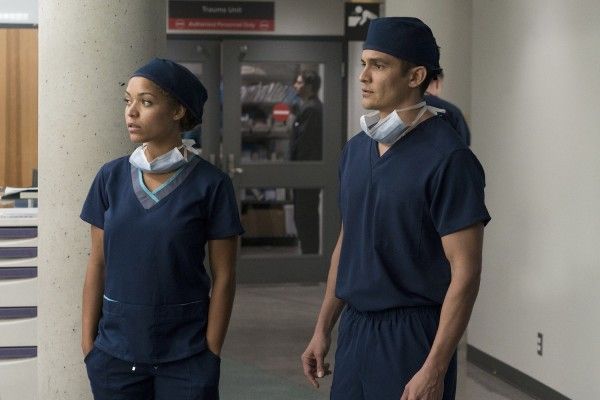
“The day the rain smelled like ice cream, my bunny went to heaven in front of my eyes,” says surgical resident Shaun Murphy (Freddie Highmore) to the board of San Jose St. Bonaventure Hospital. He’s explaining his reasons for being a doctor, which is predictably motivated by a death (or in this case two) that he couldn’t prevent. Not that surgery would have helped in either case, but that’s besides the point. And despite the fact that we saw him leaving a home he appears to own to start the episode, Shaun adds, “And I want to make a lot of money so I can have a television,” a forced callback to a comment earlier in the hour.

The board put on their best “awww” faces, applaud, and welcome Shaun into the fold. Because on The Good Doctor, someone with autism is somewhat magical. Though hospital president Dr. Glassman (Richard Schiff) assures the board that Shaun is not Rain Man, he quickly adds, “he is high-functioning, and he has savant syndrome with genius-level skills in several areas!” So in case you were worried that someone who might seem different may also act differently and challenge your world view, thankfully he’s a once-in-a-generation genius, but a childlike one so he’s not too intimidating.
To the show’s credit, Freddie Highmore is perfectly cast as Shaun, because Highmore is excellent at playing characters who are uncomfortable in this world. As Norman Bates on Bates Motel, he was a strange though likable guy who, yes, was also a murderer, but in his defense he didn’t realize he was one until late in the series. As Shaun Murphy, Highmore is again stilted and awkward (purposefully so on both accounts), as he navigates a new job at the hospital and everything that comes with it. The Good Doctor does admirable work of briefly showing Shaun’s discomfort at the crowd and the noises of a busy airport, but once he’s focused in on saving a young boy’s life he’s completely at ease.

Still, The Good Doctor keeps Shaun as an outsider who will need to constantly prove himself to a tropey group of unlikeable doctors who are all banging each other (because of course, this is a medical drama on broadcast TV). Outside of Shaun’s story, though, everything is boilerplate with exposition out the wazoo. Throughout, “Burnt Food” clearly telegraphs every plot point (save for one genuine surprise that elicited a shriek of inappropriate laughter from me because of how badly it’s done), and gives Shaun a twinkling soundtrack to back up the show’s apparent assertion that autism is such a whimsical state of being.
Autism also, evidently, makes you a purveyor of hard truths clearly communicated at key moments, like when Shaun addresses the head of surgery (Nicholas Gonzalez) to close the episode by saying “You are very arrogant. Does he help you be a surgeon? Does it hurt you as a person? Is it worth it?” Viewers, are you paying attention? If not let’s make desperately sure that you understand this is a haughty surgeon who might be compromising his personal life in the name of work — do you see? DO YOU SEE?
We are left with this koan of consideration as the credits roll, and not a moment too soon. Despite attempting to be some kind of House and Doogie Houser hybrid, The Good Doctor lacks the wit of the former and the charm of the latter (though it does include some decent onscreen anatomy animations). I could go on and on about the the leaps of logic and more ridiculous moments of the pilot, as well as the scene when a doctor literally gives a dictionary definition of autism out loud to everyone, but I’ll spare us all. For a show that wants us to respect Shaun’s intelligence, The Good Doctor lacks any respect for viewer intelligence.
